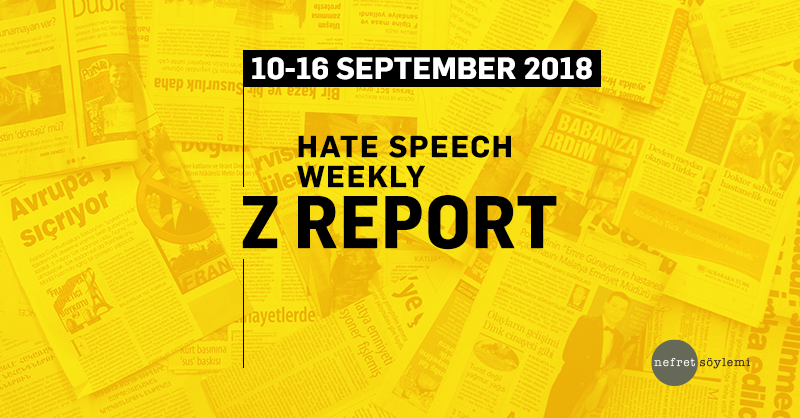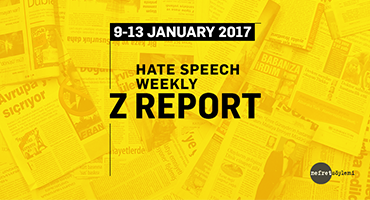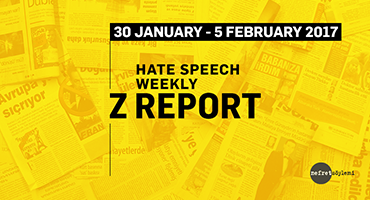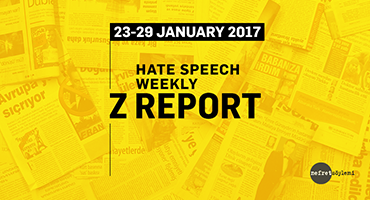Within September 10-16, 2018, three articles that generate hate speech were selected. You can find these articles that contain hate speech against Armenians, Jews and Syrians as well as the analyses written about them below.1
1.
The article published in Ortadoğu with the title “Armenian provocateurs in Azerbaijani holiday” covers the reported incident by attributing it to Armenian identity. In this way, the newspaper reinforces prejudices against Armenians. |
2.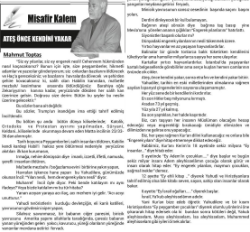
Mahmut Toptaş in his column ““Fire burns itself first”, associates all Jews with violence and massacre and portrays them as enemies in the following remark: “After the blood-shedder murderers of the tiny state founded by Jewish terrorists raked the dear, beloved child of an unarmed, defenceless father with US-made weapons, the heartfelt cry of the desperate father that cut people who have heart to the bone and the cry of the mother who tore her hair at her dead child’s elbow and turned to God since there is no one that hears her reminds ‘the vipers’.” |
3.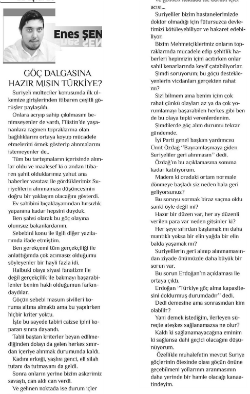
Enes Şen, in his column titled “Turkey, are you ready for the flow of migration?” associates Syrians with crime and presents them as a socio-economic threat throughout the column as we see in the following remarks: “Some were accepted in midst of all these debates and unfortunately, our experiences or what we saw in news reports showed that keeping Syrians out would be the right move. We heard that some stabbed the host and some committed theft” and “Since Syrians cannot work as physicians in our hospitals, they recklessly defame and insult our state. While our soldiers are martyred on their lands making us grieve, they enjoy themselves on the seaside.” In this way, the columnist reinforces the existing prejudices against Syrians, cementing hatred and discrimination. |
1. Within the scope of the media monitoring work focusing on hate speech, all national newspapers and around 500 local newspapers are monitored based on pre-determined keywords (e.g. Traitor, apostate, refugee, Christian, Jewish, separatist, etc.) via the media monitoring center. While the main focus has been hate speech on the basis of national, ethnic and religious identities; sexist and homophobic discourses are also examined as part of the monitoring work.

